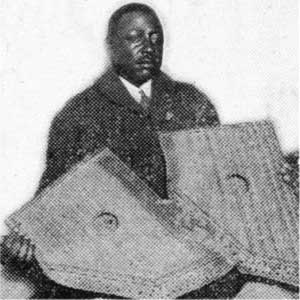January 13, 2013 -
Blues instance, Pastor KM Williams, heating - Danny Dorchin and Noam Dayan. Saturday 01/12/2013. Attended, photographed and touched Blues reports - Yuval Erel. The article was also published in " megaphone "independent newspaper network.
Pastor Kay. Um. Williams Israel. Photo: Yuval Erel
Pastor Kay. Um. Williams Israel. Photo: Yuval Erel
African American pastor sermon on Saturday night, sounds reasonable, but this time we are dealing sermon blues with lots of love to Israel IsraelA lot of love of Israel back, so you can summarize what happened in the show summarizing the visit to Israel by Pastor Ki. um Williams of Houston, Texas, a kind of messenger blues.
Blues is a musical style and vocal and instrumental based on the pentatonic scale and typically the characteristics of harmonic progression of 12 boxes. Blues has many incarnations in the folk style in the cotton fields of the Mississippi Delta to Rock - Blues of the late sixties style. However, the Blues felt in all styles of popular music.
The origin of the blues is in the United States, the singing of African slaves. This included singing work songs, religious songs and characteristics of African-rooted music. This style is considered to be poetical, melodic, harmonic and has its own special rhythm, which distinguishes it from any other musical style.
When they entered the electrical instruments massive use of music in the fifties, the blues was the basis for the birth of rock and roll, which marked a new era in music history. Blues greatly influenced popular music and led to the myriad styles representing the weight of modern Western music: jazz, rhythm and blues, rock, metal, country and even some influences on modern classical music.
l
After the show - North Mississippi AllStars, after the visit of Robert Balfour, a young man of 71 north Mississippi community Hblozistim gave Israel a valuable lesson how to play the "blue sadness that" it's the next step - Pastor Kay. Um Williams , say that he is " stiff as dry skin of a snake in the deserts of the south, as beautiful as the sunrise over the Gulf of Mexico west and slashing as the Red River north of the country, next to him was born 56 years ago . " Rumor just like in fairy tales, Williams learned to play more as a child playing blues drifter who moved to the city ...


Williams, had a very brief visit here to appear before hundreds of addicts genre temple local rock Barbie participate artist's workshop in the creator, to appear before the crowd in Jerusalem on a Friday night cold and snowy and summarize his visit to Israel concert blues, right, in the basement (Lbontinsba) dank and dark intimate but packed to capacity with a young audience in spirit but his silver hair.
The show started a local heating of Noam Dayan and Danny Dorchin gave much respect to the genre, and the time has come for this. Then came the priest, a black suit, shirt unbuttoned, tie fifty shades of gray, leather shoes and a hat Borsalino Black decorated, ready to demand that the Sermon on Sunday at church, but this time it was the church of a different kind, the Church of the Blues, a show of nearly two hours without a break, Booty types of guitars, accompanied by drummer Yonatan Bar Rashi and some songs even Danny Dorchin joined with Wonder harmonica ...

Pastor periodically bestows love on the audience, wisdom and true wisdom, handed my ears crowd the real roots of the blues, rough, dirty, popular, direct, without flattering and impartially.
The essence of the experience occurred the evening could keep using photos and some video clips, those who felt listening, understand ...
Video



